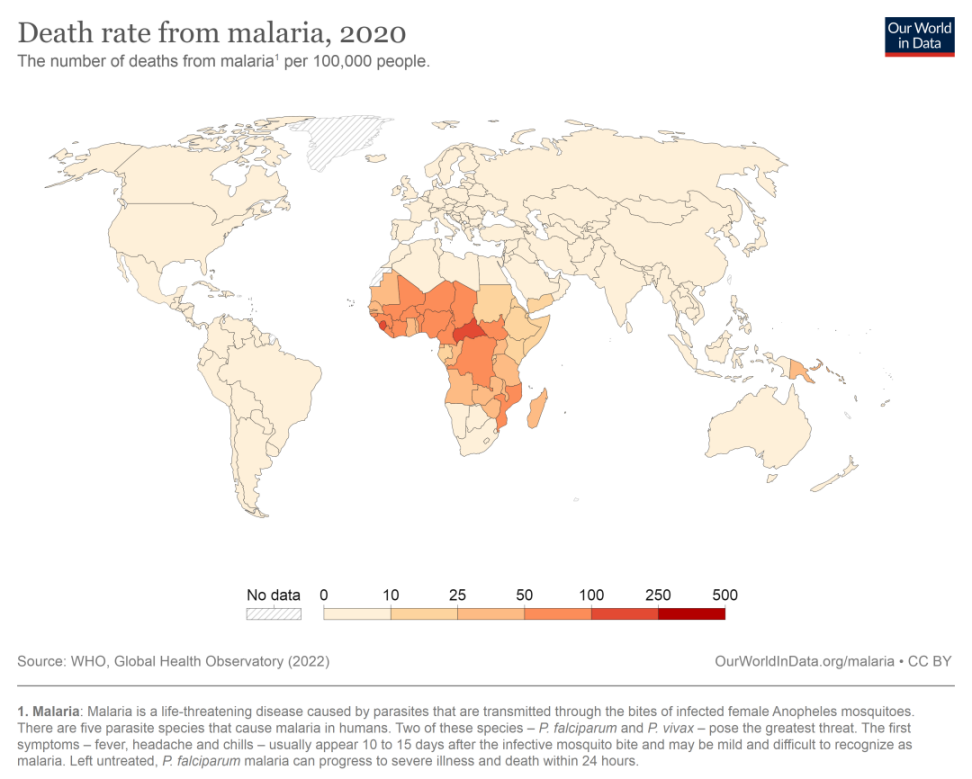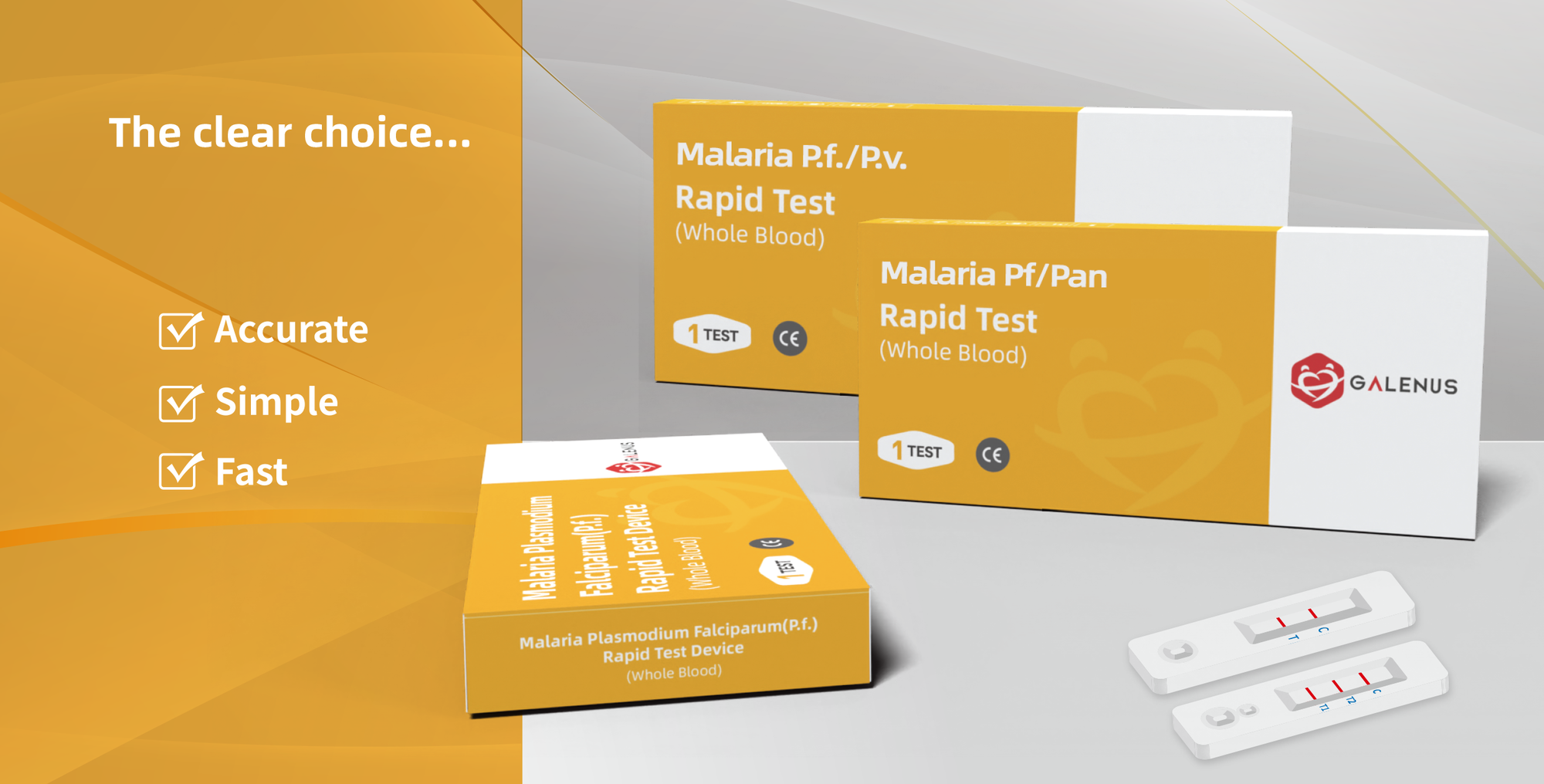Follow our latest developments
April 26, 2023 is the 16th "National Malaria Day", and the theme of this year's "National Malaria Day" publicity and education activities is "Beware of imported malaria and continue to consolidate the results of elimination". Malaria is an infectious disease caused by malaria parasites. China has passed the World Health Organization's certification for malaria eradication standards, but in some tropical countries, malaria is still a relatively common disease.
Overview of malaria
Malaria is a parasitic disease transmitted through the bite of Anopheles mosquitoes. It is one of the five major parasitic diseases in the world, with a high incidence rate and mortality. Its pathogen is Plasmodium. There are four main types of malaria parasites that parasitize the human body: Plasmodium vivax (P.v), Plasmodium falciparum (P.f), Plasmodium malariae (Plasmodium malariae), and Plasmodium ovale. In the world, P.v and P.f are the most common, while three-day malaria and ovoid malaria occur less frequently. Plasmodium spores enter the human body through the bite of malaria mosquitoes. After developing and reproducing in the liver, they produce a large number of merozoites that are released into the bloodstream and invade red blood cells for fission proliferation, causing damage to organs such as the liver, spleen, brain, and kidneys. Especially for people without malaria immunity, infection can lead to death within a few hours due to cerebral malaria, as well as death due to severe anemia or kidney failure. If left untreated, 20% of falciparum malaria patients will die.
Epidemic situation of malaria
According to WHO data, the number of malaria cases in 2020 was 241 million, with 627000 deaths due to malaria. The mortality rate of malaria worldwide is 0.26%.

Countries with high malaria mortality and incidence rate are concentrated in sub Saharan Africa. From 2000 to 2020, the mortality rate in Nigeria, Mali, South Sudan and other three countries has been declining, but during the COVID-19 epidemic, the mortality rate has increased to a certain extent. The WHO 2020 World Malaria Report pointed out three data points: 95% of malaria cases are concentrated in sub Saharan Africa, 96% of malaria deaths are concentrated in sub Saharan Africa, and 80% of deaths in the region are in children under the age of 5.
Malaria diagnosis
People are generally susceptible to malaria, and although they can acquire a certain degree of immunity after infection, it is not long-lasting. Infected with the same type of malaria parasite again, the clinical symptoms are mild or even asymptomatic. When individuals from non malaria endemic areas are infected with malaria parasites, the clinical manifestations are often severe, and there is no cross immunity between different types of malaria.
Diagnosis of malaria and rapid and accurate detection of malaria parasites are key to effective prevention and control of malaria, and the most reliable identification method still relies on etiological determination. The colloidal gold immunochromatography technology has been widely used in the rapid diagnosis of malaria and has achieved results. Its main principle is to coat anti malaria specific antibodies on cellulose acetate membranes to capture malaria parasite antigens in blood samples. Then, the same antibody is labeled with colloidal gold, and the labeled antibody can form a visible precipitate band on the membrane with the captured antigen in the chromatography. This method is easy to operate, and non professional personnel can operate according to the instructions. The diagnosis is fast, and the results can be observed within 20 minutes. The results are easy to judge, and the experimental process does not require power and instruments. Therefore, it is suitable for on-site and grassroots personnel to use.The colloidal gold immunoassay technology is currently the recommended method for on-site screening of malaria by the World Health Organization (WHO).
Advantages of Galenus Medical Malaria Testing Products
Galenus Medical Malaria Detection Products (Colloidal Gold) have a wide and comprehensive coverage, including: rapid detection kits for Plasmodium falciparum, Plasmodium vivax, Plasmodium ovale, and Plasmodium vivax, as well as rapid detection kits for circulating Plasmodium falciparum and Plasmodium vivax.

This type of product uses colloidal gold labeled immunochromatography as a one-step detection kit, which qualitatively detects the specific proteins contained in malaria parasites in blood samples to diagnose whether the sample is infected with malaria parasites. It can simultaneously detect multiple species including Plasmodium falciparum, Plasmodium vivax, Plasmodium triticum, and Plasmodium ovatum infections, as well as qualitatively detect Plasmodium falciparum and non Plasmodium falciparum infections.It has the characteristics of simple operation, fast, accurate, and stable.It is suitable for areas where the quality of microscopy or laboratory technology is difficult to ensure, the epidemic range of malaria is uncertain, malaria is low in transmission, and drug abuse needs to be avoided to reduce the development of resistance.Helping doctors and medical institutions quickly detect malaria infection, timely and appropriate treatment, helping patients shorten the course of disease, alleviate symptoms, overall reduce disease mortality, improve people's health level and awareness, is of great significance for the comprehensive elimination of malaria.